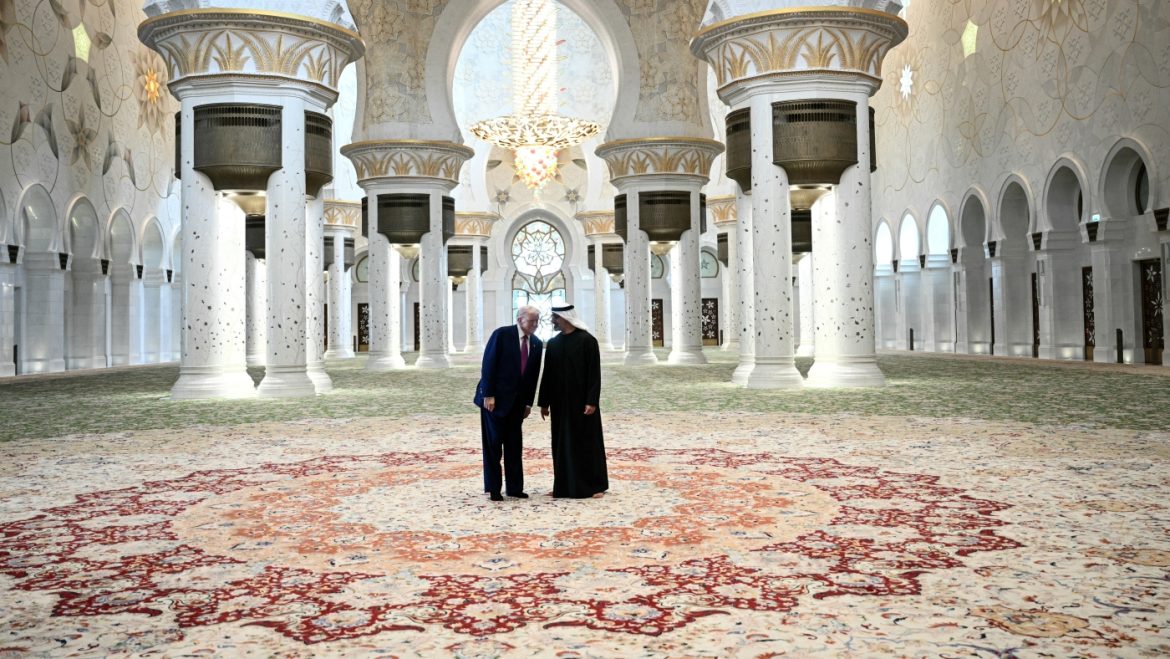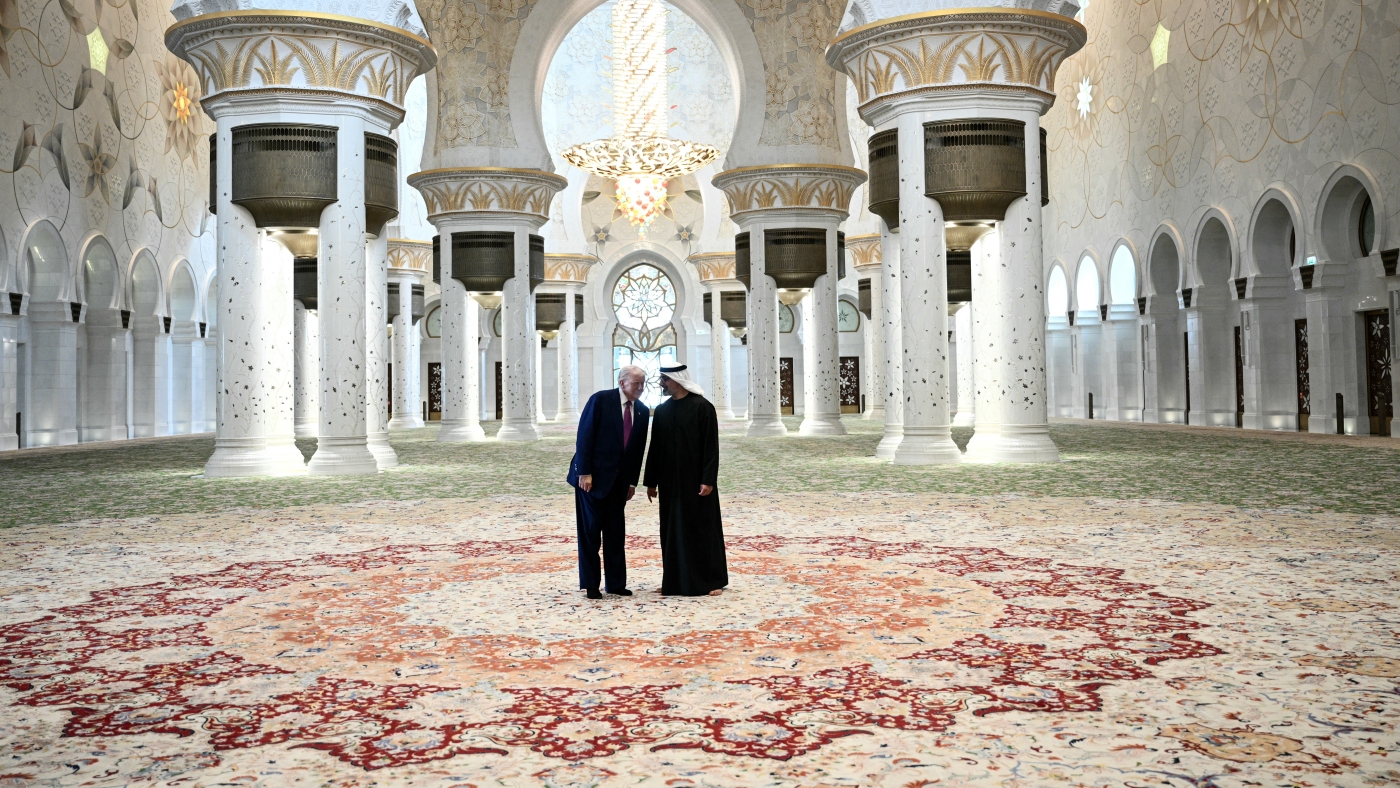President Donald Trump’s visit to the Sheikh Zayed Grand Mosque in Abu Dhabi during his 2025 Middle East tour marked a notable departure in his presidential record as his first publicly known visit to a Muslim house of worship. This event unfolded against a broader backdrop of diplomatic and economic engagements across the Gulf region, shaping an intricate picture of political symbolism, cultural navigation, and strategic interests.
Contextualizing the Historic Mosque Visit
Historically, U.S. presidents have frequently visited churches as gestures of respect or solidarity with religious communities. Visits to mosques, however, have been comparatively rare, with Dwight D. Eisenhower’s 1957 mosque speech noted as a prominent precedent. Trump’s visit to the Sheikh Zayed Grand Mosque—one of the largest and architecturally magnificent mosques globally—was therefore a significant gesture, breaking new ground in presidential engagement with Islamic culture.
This mosque visit was not an isolated gesture but part of a larger state visit itinerary that included meetings with key Emirati leaders such as President Sheikh Mohamed bin Zayed Al Nahyan and Crown Prince Sheikh Khaled bin Mohamed bin Zayed Al Nahyan. Trump was warmly received with many symbolic honors, including being awarded the UAE’s highest decoration, the Order of Zayed, underlining the diplomatic warmth and mutual respect between the U.S. and the UAE.
Symbolism and Reception Amid Political History
Trump’s political career has often been marked by controversy and criticism regarding his rhetoric about Muslim communities. Given this backdrop, the mosque visit carried heavy symbolic weight. It signaled a willingness to engage with unfamiliar cultural norms and extend diplomatic respect to a religion that had not conventionally been at the center of Trump’s public or political engagements. Reports described the visit as a remarkable gesture, highlighting an openness to bridge divides and perhaps recalibrate perceptions in the Gulf and globally.
During the mosque tour, Trump notably observed customary protocols such as removing his shoes, a sign of respect and a tangible connection to Islamic traditions. His public praise of Islam’s “incredible culture” further suggested an effort to acknowledge the grandeur and spiritual significance of the institution he visited, thereby enhancing the visit’s impact as more than just a diplomatic formality.
Economic and Strategic Dimensions of the UAE Visit
The mosque visit was just one component of a broader and more pragmatically driven diplomatic mission focused heavily on economic partnerships and security cooperation. Trump’s tour of the UAE coincided with the announcement of deals totaling over $200 billion, underscoring the trip’s primary feature as a platform for strengthening commercial ties and technological collaboration.
A particularly noteworthy aspect of these agreements was the focus on advancing cooperation in artificial intelligence, including preliminary deals allowing the UAE to import large volumes of cutting-edge AI chips from U.S. manufacturers. This dimension aligned with the UAE’s vision to position itself as a leader in emerging technologies and with America’s drive to maintain technological supremacy. It underscored the visit’s dual role as both a cultural outreach and a strategic alliance-building exercise.
Additionally, the visit was linked to regional security concerns and geopolitical positioning. With the U.S. seeking to reinforce alliances in the strategically vital Persian Gulf region, the diplomatic choreography around the mosque visit and state dinners at places like Qasr al-Watan palace reflected efforts to solidify partnerships amid complex regional dynamics involving Iran and broader Middle Eastern security architectures.
Navigating Family Business and Ethical Considerations
Observers and ethical experts noted that Trump’s Middle East trip also intersected with his private business interests. The Trump Organization’s extensive real estate developments in Saudi Arabia, Qatar, and the UAE complicated perceptions about the visit’s motivations, raising concerns about potential conflicts of interest between public diplomacy and private gain. While the mosque visit and state-level honors projected an image of official engagement, underlying commercial considerations were unmistakably part of the broader narrative framing the trip.
Media and Public Reaction
Media coverage across major outlets such as NPR, The Washington Post, Reuters, and The National spotlighted the uniqueness of the mosque visit and the scale of economic announcements. Some reports labeled the mosque visit as historic and unprecedented during Trump’s presidency, highlighting the intersection of cultural diplomacy and high-stakes economic negotiation.
The narrative also reflected the stark contrast between Trump’s previously expressed attitudes toward Islam and the respectful ceremonial conduct exhibited during the mosque visit. This juxtaposition invited commentary on the complexities of presidential diplomacy where public image, political realities, and international relations intersect.
—
Conclusion: A Multifaceted Diplomatic Moment
President Trump’s visit to the Sheikh Zayed Grand Mosque was a layered, multifaceted event that combined symbolic cultural outreach with pragmatic diplomatic and economic engagement. It marked the reconciliation of Trump’s political journey with a more nuanced embrace of Islamic culture amidst a critical strategic region.
While it broke a precedent in presidential protocol and offered a gesture of respect toward Muslim communities, the visit was embedded firmly in a grander context of forging lucrative business deals and strengthening U.S.-Gulf alliances. The trip highlighted how state visits are rarely simple cultural affairs but rich, complex events entangled with geopolitical ambitions, economic interests, and personal dimensions.
Ultimately, the mosque visit stands as a memorable landmark in Trump’s foreign relations legacy, demonstrating how symbols and substance converge in the theater of international diplomacy.
—
Deepen your understanding of cultural diplomacy and strategic ties with insights from President Trump’s historic Sheikh Zayed Mosque visit. Learn more


